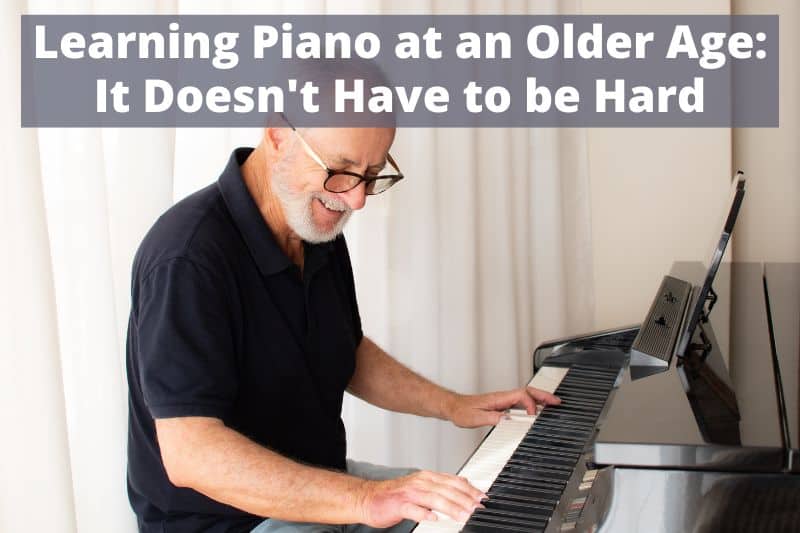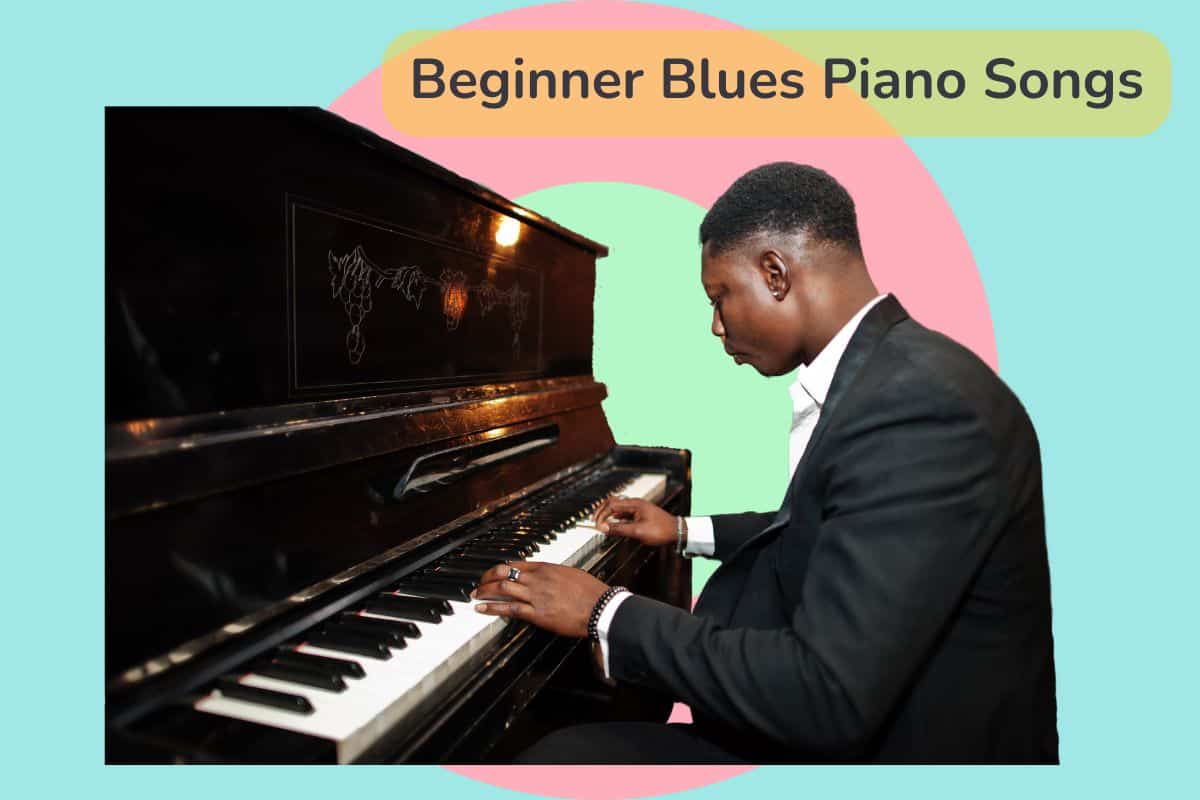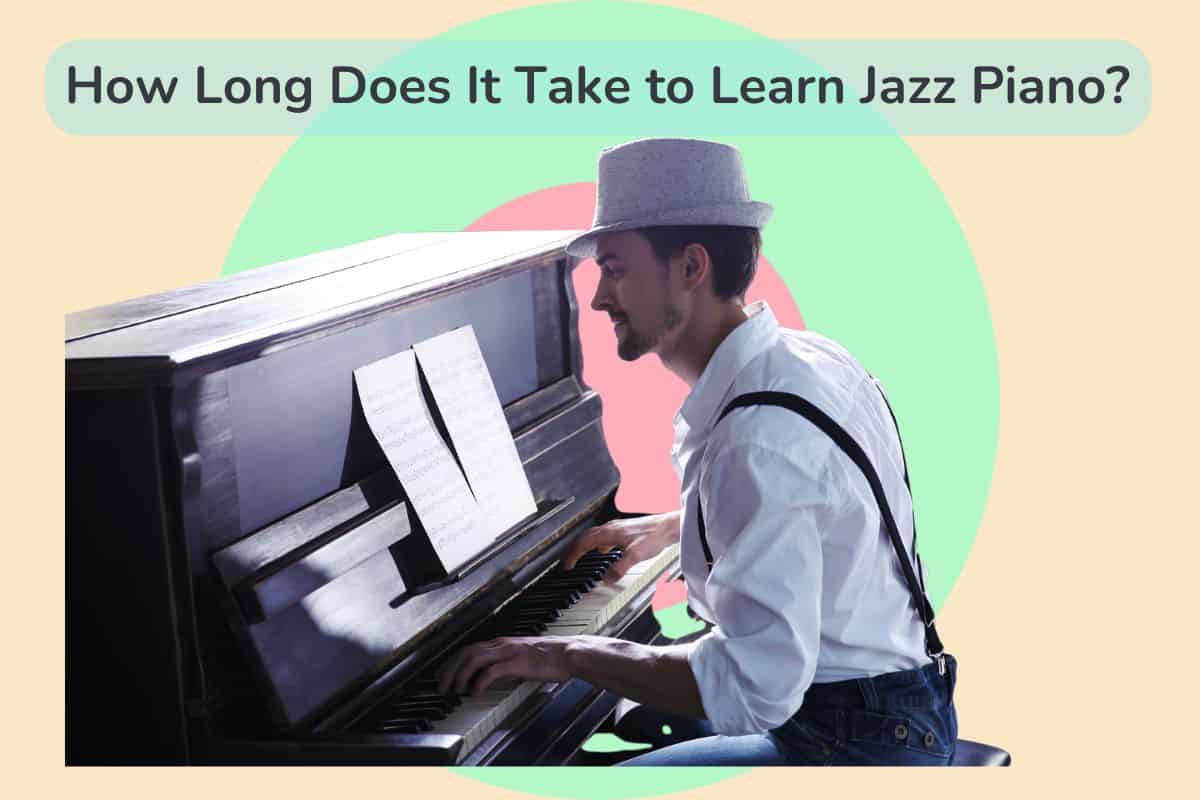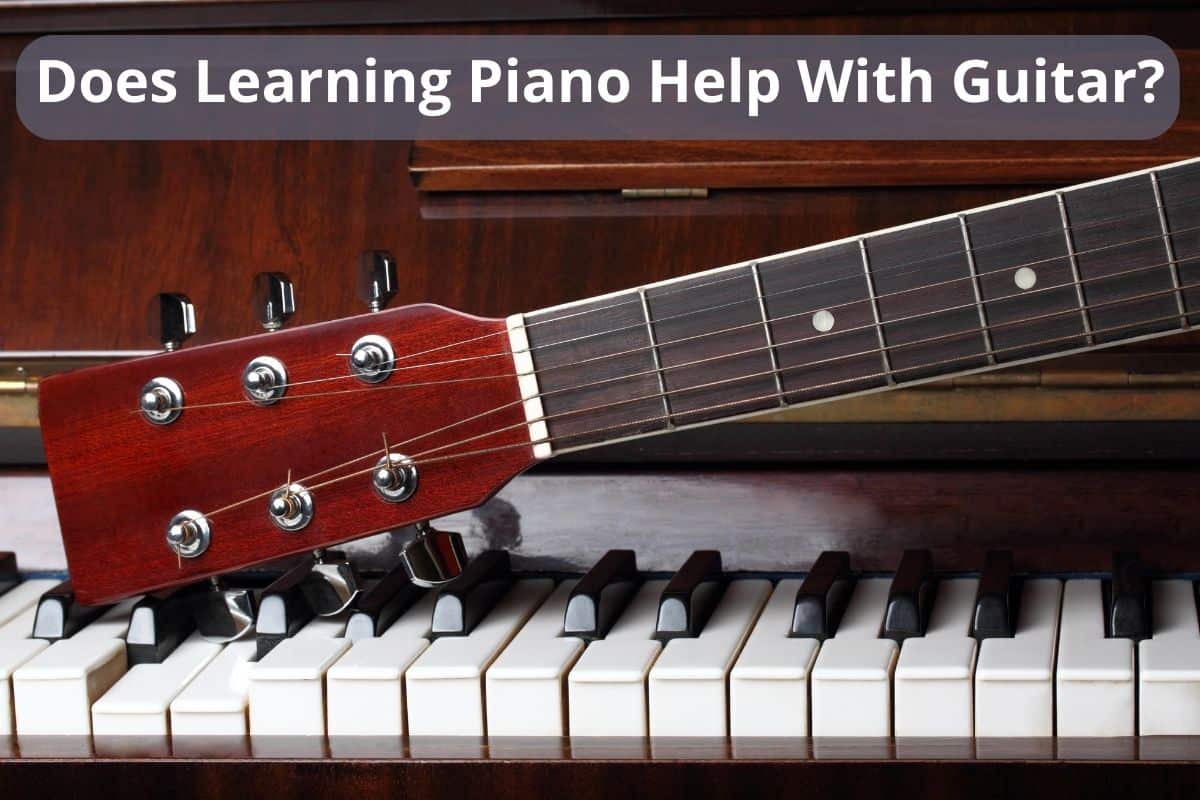Are you considering learning to play the piano but worried you might be too old to start? Or will it just be too hard to learn? You’re not alone! Many adults wonder how hard it is to learn piano at an older age.
The good news is that it’s never too late to start learning a new skill, including playing the piano.
While it’s true that children’s brains are more malleable and can absorb information more easily, adults can still learn new things, including playing an instrument.
So, is it hard to learn piano at an older age? The answer is that while learning as an adult may take more time and effort, it’s definitely possible. Yes, there will be challenges, but with a desire to learn, dedication, and practice, you can master the piano at any age.

There are many benefits to learning piano as an adult, including reducing stress, improving memory, and refining communication and social skills. In this article, we’ll explore the challenges and positives of learning piano as an adult and provide tips to help you on your musical journey.
Age is Just a Number
When it comes to learning piano, age is just a number. While it may be true that children’s brains are more plastic and thus better equipped to learn new skills, older students have a better worldview. Their life experience makes them more likely to know what they want and how to achieve it.
Don’t let your age discourage you from pursuing your passion for music. In fact, many adults find that learning piano later in life is a rewarding and fulfilling experience. It can even have cognitive benefits, such as improving memory and concentration.
What’s the Best Age to Begin Piano Lessons?
There’s no one-size-fits-all answer to this question. Some people start learning piano at the age of five, while others start when they’re 60 or older. There is no wrong age; the ideal age to begin is whatever age you are now.
Whether you’re a beginner or an experienced piano player, the piano is a great way to learn music and enjoy playing for years to come.
Of course, being an adult student may come with its own set of challenges. You may have less free time than a child or teenager, and your fingers may not be as nimble as they once were. However, these obstacles can be overcome with a solid motivation to learn and practice.
One tip for those studying piano as they age is to set realistic goals. Don’t expect to become a virtuoso overnight; instead, focus on making steady progress and enjoying the journey. It’s also important to find a teacher who understands the unique challenges of adult learners and can help you tailor your practice to your individual needs.
Another advantage of learning piano as an adult is that you have a greater appreciation for the music itself. You may have a deeper emotional connection to certain pieces or genres, making the learning process more enjoyable and meaningful.
Ultimately, the key to success in learning piano at any age is to approach it with a positive attitude and a willingness to learn. Don’t be afraid to make mistakes or take your time; the joy of playing piano is in the journey, not just the destination.
The Benefits of Learning Piano as an Older Adult
Learning to play the piano as an older adult can be a rewarding and enriching experience. It offers a range of benefits that can enhance your cognitive, emotional, and social well-being. Here are some of the key benefits you can expect:
Cognitive Benefits
Learning to play the piano can help improve your cognitive abilities, including memory, focus, and attention span. It can also help improve your hand-eye coordination and fine motor skills. Additionally, playing the piano can help stimulate your brain and improve your overall mental health.
Discovering activities that can prevent age-related cognitive decline is crucial to successful aging. Various studies have demonstrated that learning an instrument can significantly enhance cognitive performance, particularly in healthy older adults.
This is because learning musical skills in later life requires unique demands on our brains. Maintaining a healthy and active mind as we age, similar to keeping an active body, is essential to ensure optimal brain fitness.
Emotional Benefits
You can also experience emotional benefits, such as reducing stress and anxiety and improving your overall mood. Playing the piano can be a form of self-expression and can help you relax and unwind after a long day.
It’s a great way to switch off from the outside world. One of the fundamentals of playing the piano is the need to focus; you can only do that when you’re fully immersed in your piano playing.
Additionally, playing music can help boost your self-esteem and confidence. As you learn how to play the piano and improve your skills, you’ll feel a sense of accomplishment and pride in your abilities.
Social Benefits
There are also social benefits to be had, such as providing opportunities for social interaction and connection with others. You can join a local music group or attend concerts to meet other musicians and enthusiasts. Connecting with other piano students is a great way to keep up motivation, whether you do this online or in person.
Playing the piano can also help you connect with your family and friends. You can play for them during gatherings or teach them how to play the piano.
Overall, learning to play the piano as an older adult can be an enjoyable and fulfilling experience. It offers a range of benefits that can improve your cognitive, emotional, and social well-being. So, if you’ve ever thought about it, now is the perfect time to start!

Challenges of Learning Piano Later in Life
You’re always young enough to start learning piano or keyboard, but you may experience some challenges as you age. In this section, we’ll explore some common challenges adult learners face when learning the piano and provide tips to help you overcome them.
Physical Limitations
As you age, you may experience physical limitations, making it more difficult to practice the piano. Arthritis, for example, can make it hard to move your fingers and play chords. If you have a hearing impairment, it may be difficult to hear the notes and distinguish between different sounds. Suppose you experience any of these physical limitations. In that case, working with a teacher who can help you find ways to adapt and overcome these challenges is essential.
Time Constraints
Learning piano requires time and dedication, and finding time to practice can be challenging if you have a busy schedule. Setting aside dedicated time each day or week to practice, even for just a few minutes, is important. You can also find ways to incorporate piano practice into your daily routine, such as during your lunch break or before bed.
Learning Style
Everyone learns differently, and as an adult learner, you may have a different learning style than a child or teenager. It is essential to find a teacher who understands your learning style and can adapt their teaching methods to fit your needs. Some adults may prefer a more structured approach to learning, while others may prefer a more relaxed style. It’s important to communicate your preferences with your teacher so that they can tailor their instruction to your needs.
Learning piano later in life can be challenging, but it’s also a rewarding experience that can provide numerous benefits. You can successfully learn to play the piano at any age by understanding your challenges and finding ways to overcome them.
Tips for Learning Piano as an Older Adult
Learning to play the piano as an older adult can be both fulfilling and demanding. However, you can achieve your musical goals with the right mindset, teacher, and practice habits. Here are some tips to help you get started:
Commit to Learning
If you want to learn the piano as an older adult, you need to commit to the process. Set aside time each day to practice and prioritize it in your schedule. Remember that learning to play an instrument is a journey, not a destination. Keep going even if you don’t see progress right away. Keep practicing, and you will improve.
Find the Right Teacher
Having the right teacher can make all the difference in your piano journey. Look for a teacher specializing in teaching adults with experience working with beginners. A good piano teacher will be patient, encouraging, and able to tailor their teaching style to your needs and goals.
Take Piano Lessons
Following a structured path will always give you better results when learning something new. Nowadays, there are many ways to learn piano, including online lessons and courses. Find what works for you so you can enjoy playing the piano.
Practice Smart, Not Hard
When it comes to practicing, quality is more important than quantity. Instead of practicing for hours on end, focus on practicing efficiently. Break your practice sessions into smaller, more manageable chunks and focus on specific skills or techniques. Use tools like metronomes and recording devices to help you track your progress.
Set Realistic Goals
Setting realistic goals is key to staying motivated and making progress. Start with simple pieces and gradually work up to more challenging ones. Celebrate small victories along the way, and don’t be too hard on yourself if you make mistakes. Remember, the goal is to enjoy the process of learning and improving.
Learning to play piano as an older adult can be an enjoyable and enriching experience. You can achieve your musical dreams by committing to the process, finding the right teacher, practicing efficiently, and setting realistic goals. Keep in mind that everyone learns at their own pace, so don’t compare yourself to others. Enjoy the journey, play for your own enjoyment, and have fun!
Final Thoughts
When it comes to learning the piano, being older may seem daunting. But remember, if you want to play, you’re never too old to learn, and there is always time to start.
You can achieve your goals and become a successful pianist with dedication, patience, and the right resources.
Make sure you start with the basics and practice regularly. Don’t be afraid to make mistakes; they are a natural part of learning. Celebrate your progress and enjoy the journey.
Finding a good teacher who can cater to your specific needs and is patient is important. Ask for recommendations from friends or search online for qualified instructors.
Additionally, many online resources are available to help you learn the piano, including instructional videos, practice exercises, and sheet music. Please take advantage of these resources and incorporate them into your practice routine.
Finally, don’t forget to have fun! Learning the piano is a rewarding experience that can bring joy and fulfillment to your life. So, grab your sheet music, sit down at the piano, and let the music flow.



